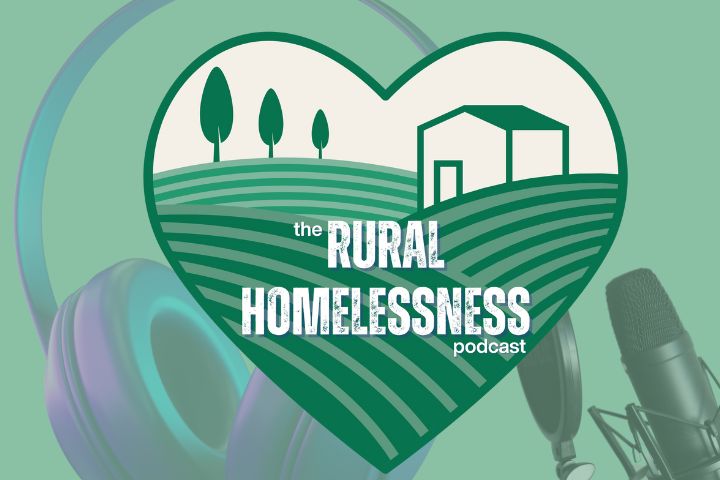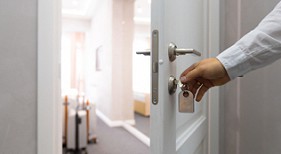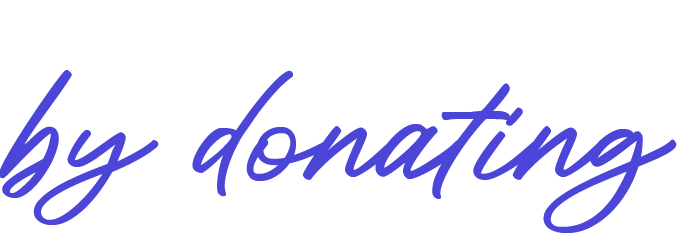➤
Back to News
26 August 2024
John's Journey: From Homelessness to Hope
In the third episode of the Rural Homelessness Pocdcast, John shares his personal experience of homelessness, the challenges he faced, and the support he received from The Ferry Project. He discusses the impact of rural homelessness and the unique approach of The Ferry Project in providing hope and transformation. John's journey from homelessness to becoming a staff member at The Ferry Project is a testament to the organization's success in changing lives.
Click here to listen to this episode
Transcript
Introduction
This is the Rural Homelessness Podcast, where we discuss the important issues around rural homelessness, hear from those affected by it, and offer some solutions. Brought to you by the award -winning homelessness charity, The Ferry Project. Welcome to the Rural Homelessness Podcast. Hello, and thank you for joining me on another episode of the Rural Homelessness Podcast.
Matt McChlery (Host)
My name is Matt McChlery and I am your host and it's wonderful that you have chosen to click on over to the Rural Homelessness podcast today. On today's show, I'm going to be speaking with John, who has experienced homelessness firsthand. We'll be discussing his experiences as well as learning about how the Ferry Project managed to help him through some of those difficult times in his life. So let's welcome John to the show. Hi, John.
Welcome to the Rural Homelessness Podcast.
John
Hi there.
Matt McChlery
Thanks for agreeing to chat with me today. As someone who's experienced homelessness firsthand, what was it like for you before you came to the Ferry Project?
John (Guest)
So in the early 2000s, I was married to two children doing above average, I think was doing above average.
I had several acres of land, horses, and everything was going well.
Yeah, there's a question I still always ask myself now, why? But I got involved with the wrong people and ended up making some real bad mistakes that ended up in incarceration. Now, from the result of that, that ended my marriage. My wife relocated with a new partner up in Boston near Skegness.
I'd made the decision that, because my children were still quite young, that I would try and move closer to them. Because I felt that being all that way in Essex, I wouldn't see them much. So I made the decision to try and start a new life in Wisbech. When I first got there, there was another friend of mine whose mother thought that she could help, and she lived quite near in Chatteris.
But that went badly wrong quite quickly. So I put myself into a cheap bed and breakfast locally and thought, it won't be long, I'll get myself a job. You know, I'm not proud to do anything. There's not much I won't do. There's not much I haven't done in my careers. And once I'm back on my feet, I can start seeing the children and can start coming to stay with me.
But unfortunately, I ran out of money. I ran out of money and therefore I was on the streets. I didn't have any priority needs, so I wasn't deemed priority to put into any temporary accommodation. Plus the other thing I didn't have on my side was I had no local connection. However, I continued and I continued to believe that something would happen one day, something would go right.
But I started drinking. First, I started drinking the vodka. And again, I had been asked why that happened. Not sure whether it was to numb out the cold, because it is a little bit colder in the Fens than it is in Essex. So was it to numb the despair or was it to numb the cold? Was it both? That's how it started. Became a vicious circle.
I then become alcohol dependent and my life revolved around alcohol from the moment I woke up to the moment I passed out or went to sleep.
Matt McChlery
So that was your journey on the street. Apart from your hunt for alcohol, was there anything else that formed a day for you when you were homeless?
John
So, and again, without a shadow of a doubt, it's the most traumatic thing I've been through, is on the streets. You know, I'm not the most timid of people, however, it is quite frightening and scary on the streets. I didn't know it was beach, I had no family or friend connections here. I was embarrassed, I didn't want to phone my family.
I didn't want to call on my friends. They've often asked why didn't you call us? And I just felt that I've got myself into this pickle or this hole and I wanted to get myself out of it. And I think looking back now, that was the right decision to do. I think people would have been supportive around money. I think that all that would have done was fuel the alcohol. These were decisions that I had to battle with and I had to make. But I spent my days trying to sleep and trying to keep myself safe and on the move of the night time and through the coldest hours. So I was not someone that would sleep too much into the woods. I try and keep myself visible. And that may be on a park bench or St. Peter's church benches at the time.
Matt McChlery
And what would you say some of your biggest challenges were when you were on the streets?
John
So obviously, alcohol was a priority. I was also a smoker. So to provide myself with food and tobacco, you know, you've had to do some things that I'm not that proud of.
And that's when you start to lose your self -respect and your dignity when you're now hunting the bins of fast food outlets to see what they've thrown out in the evening and picking up doggins on the streets. Even to the fact where you've run out of alcohol when you're walking around, when pubs have shut and seeing what's left in glasses or someone's left in a can on the floor.
The amount of times I picked a can up and shook it and thought, I hope someone hasn't put the cigarettes out in this one or even worse. However, it didn't stop me drinking it at the time.
Matt McChlery
So your experience of homelessness in Wisbech and for some listeners who've been listening to this podcast so far knows that we're focusing on on homelessness and Wisbech - Wisbech is a rural place.
It's a town in the middle of the the Finland countryside in England, in the UK. How do you think from your experience of being homeless yourself, how do you think homelessness is different for people who are homeless in the countryside or rural area as compared to say if you were in a big city somewhere?
John
So, you know, the vision that I had, obviously coming from Essex and actually being born in London is, you know, the tents on the streets and people in shop doorways and in sleeping bags. But in Wisbech, certainly in the Fens, homeless people became invisible in the evening. They were entrenched. They went into, you know, the parks and the woods and derelect houses or garages or anywhere they could seek cover really so it they were more visible during the day on the streets but of an evening they all went into these sheltered areas. Back then it was prominently Eastern Europeans. I was probably one of the only Eglish-speaking people on the streets of Wisbech which you know again just added to that trauma.
Matt McChlery
Yeah, thank you for that. That's very interesting. And when you were homeless, trying to think of some of the more positive sides of it, if there were any, what were some of the most helpful things that people said or did when they came across you when you were homeless?
John
So with me, when I was homeless, people kept trying to offer me support and kept trying to refer me to the hostel. However, again, I had this vision in my head and I perceived, you know, of what hostels were like and who went into hostels. I felt that I was different. I didn't want to go to a hostel. And I felt that, you know, something would turn around, but a lot of the help came from places like the library and places that you could keep warm. However, the more you're on the streets, the more homeless you become, the more invisible you become. People stop making eye contact. They'll put their head down and something pass. They don't want to see it. They don't. And people were saying, go to the hostel. And that word kind of put you off.
Matt McChlery
What can we say if we come across someone who's homeless and we want to try and offer them some help or point them to the place to find help rather than saying 'hostel', what might be a better way of getting that information across to someone who is in that very vulnerable and isolated state?
John
Yeah, I think we've talked about a name change here. We've talked about because, you know, since being in the hostel and working through the hostel and now obviously employed in the hostel. I don't think that the word hostel does it justice. It is nothing like you could ever think it would be. Therefore, we've looked at changing it to 'Haven' and obviously with the new opening of the off-street accommodation being called Destiny Haven, a safe place to stay.
Matt McChlery
That's interesting using the words that you have and the names are really important. Coming back to your story, you're on the streets of Wisbech and I know people were saying go to the hostel and you were resistant. How did you get to actually arrive at the Ferry Project?
John
So I remember I spoke and I said that I'd lost self-respect, I'd lost dignity. But there was one thing that I held onto, and that was hope. That was the only thing that kept me going, because I just hoped things would change. I just hoped things would get better. I just lived on this hope. I just believed and hoped that something would change. Now, I used to, like I say, sleep in public places if I could, early evening. Now, I've gone onto the streets. This would have been early 2009.
We're now 2010. I'm in the gardens of the local church and I'm washing in the little pond that they've got there to try and clear myself up. Because now when I'm actually walking around the charity shops just trying to keep warm, they're looking at me like I'm a shoplifter. And I said to them I'm not a shoplifter. I was window shopping to get a bit of respite from the cold and the wind and the rain and the snow and the ice that was out there in November.
And a group of youths that had taunted me for a few nights cam along, I recognised them. They were the same group of youths that urinated on me the night before thinking it was funny why I was trying to sleep. Anyway, they, for whatever reason, they had in their head that homeless people steal the fish from the pond to eat them because that's what homeless people do.
And they seriously assaulted me. And I came to Hitchinbrook Hospital with a fractured eye socket and other serious injuries. And they said to me, when I was discharged, you need to go to the Ferry Project. And so I made my way down to Mill Close. And as I approached the building, the building where the office was had a plaque on the wall that said, 'Hope' - Hope House.
And I thought it just feels like I'm in the right place. And I knocked on the door and I said, listen, I think I need some help. And the staff there were great. And there wasn't actually any spaces at the time, but I kept coming back each day. I think it may have only been a few days. And then I was accepted into the hospital.
Matt McChlery
So when you were accepted in and you entered for the first time, what did it feel like when you first arrived at the Ferry Project? Did it take time to settle in to the new environment or what was that like for you?
John
The old hostel was different to how it is now. It was shared accommodation, shared kitchen, shared bathrooms. It's come a long way since then. But the moment I was offered somewhere safe, somewhere warm, some food, and washing facilities, that stress was gone. Not to say the trauma was gone - that took a while to deal with. However, the worries, the concerns, the first time I slept properly in a long, long time. And I was greeted with people that I could see genuinely could feel the pain I could see that they, the empathy and sympathy that surrounded me and realized that actually I wasn't any different to anybody else in the hostel. I was the same as them. I was homeless and I needed help.
Matt McChlery
So what are some of your highlights since coming to the Ferry Project? What are you most proud of during your journey?
John
I think I'm proud of the Ferry Project. I'm not ashamed to say that I've been homeless and have been through the Ferry. I'm actually proud because of what the Ferry has done for me. I'm not saying these things work for everybody. And they certainly wasn't working for me when I first came. I wouldn't say I was the easiest of clients. I was still continuing in my ways. I was still battling with alcohol. I was battling with a trauma when I was married.
I wasn't very domesticated. I was just the one that went and earned the money. I didn't really cook properly. I didn't budget properly. I didn't have the money. I could look after myself, you know, with hygiene wise. But there was a lot of skills I was lacking. Yeah, I'm proud of coming through.
I never ever thought I'd work at the Ferry Project. I looked at the staff here and I thought, you must have patience of a saint. How can you do this day in, day out? You just want to go and shake him and tell him, wake up, come on, get on with it.
And I'd moved out and I was back into independent living. And while I was looking for a job and I was starting to get answers back on my CV, we came into here in 2010. It opened on the 5th of the 6th, 2010.
Matt McChlery
When you say here, where are you talking about? Octavia View, which is where the Ferry Project is based now, it's like the hub of operations?
John
Yeah, this is the new hostel that moved away from the old hostel, which is now the move on and resettlement properties.
And I started coming back volunteering, as a bit of a thank you. It was a blank canvas, I started getting involved in the gardens. And I think going through it has been so many highlights here.
One of the things that I needed to do when I moved out, I'd lost that network of support again from the support workers, the people that was in the hostel. I started to quickly go back down that road of drinking again because I was isolated, lonely. And one of the support workers come around to my flat and told me to get myself up on the Monday and get myself into Octavia View and start volunteering with a volunteer caretaker they had at the time. And I came in and I threw myself into the gardens and started to work on the gardens. I'd not really had much to do with gardening before, but I got so much enjoyment. It gave me something to get up for every morning. It gave me a sense of achievement. It gave me routine. And I knew I was giving something back for everything that I'd received.
And again, like I said, I didn't come from around here, so I didn't know nothing about Wisbech in Bloom. And the next thing I know, we're at an award party and we're winning the best business garden in Wisbech.
Matt McChlery
And so so from volunteering in the gardens then. How has that sort of translated into you now being a member of staff and working for the Ferry Project?
John
So yeah, I came back as a volunteer. I was doing a bit of maintenance and then they came to me and said, we're going to advertise for a concierge caretaker. Why don't you apply? So I said, why not? So I was doing a bit of DIY. I was doing quite advanced DIY and I'd been doing DIY since I was 15. I was a father at an early age, so I became the DIY man at the age of 15. And started really enjoying what I was doing. And as the years have gone on, different roles come up. And they were after someone to run the night shelter. And that meant I could work with the people that I'd walked the streets with all that time ago, and try and have some kind of impact or effect or influence or encouragement for them to change. Let them know that the help was here at the Ferry. If I can do it, everybody else can do it. So that was my most enjoyable job. When I was running the night shelter, that was my most enjoyable one. But unfortunately, COVID shut the night shelter and shut night shelters for good.
Matt McChlery
All around the country?
John
Yeah. Absolutely. So I came up with a new idea and the new creation is the emergency accommodation, which was trialed during COVID when we had bunk-a-bins that replaced the night shelter in a smaller capacity that then become COVID isolation units. And then as it started to phase itself out of COVID to a safer level, there was agreement for me to have them for a little while to try it as an assessment centre.
And now off the back of that, seeing Destiny Haven built, those nine units of off-street accommodation probably tops the bill of all the achievements. To watch something being built and actually achieving what the hopes were of that accommodation to accommodate people from street to accommodation in order to offer them everything. And for them to know that, we're safe, we're warm, we've got a shower and hot food. I know what difference that makes.
And within four to six weeks, it means that person's life's changed, that they now are able to map their own destiny from Destiny Haven.
Matt McChlery
That's really good, John. What would you like people to know about homelessness and those who experience it?
John
There used to be an event once a month up in the cafe with a twist of faith. And I used to probably see my time volunteering up there as a thank you to The King's Church because I just felt if it hadn't been for The King's Church all those years ago and what they'd done, I certainly don't know where I'd be even if I'd be here.
So I used to volunteer up there and there was a little group of elderly ladies that used to come in and they got to know me. And I was in there serving coffee one day and one evening and they stood by the window looking out and they was looking down to the smoking shelter where the clients are. And they said to me, "Here John, is that them homeless people down there?"
I said, "Yeah, they were homeless." I said, "They're safe now because they're within the Ferry Project and on to the beginning of a new life."
And they said, Are they all those alcoholics and junkies?"
And I said, "Not everybody that's homeless is an alcoholic or a junkie. And sometimes they become that way because of the homelessness."
They said, "Really?"
I said, "Do you know I used to be homeless, don't you? I used to be one of them, stood down there in that smoking shelter."
And they looked at me and said, "You used to be homeless?"
So for me, anyone can be homeless. Life was good. My life was, you know, I had horses. I didn't have to worry about bills. I didn't have to worry about much really until I'd done something really stupid in my life. But anybody's life can change. But the Ferry Project is so unique that if you want that help you can find it here. You have to want it. You have to want to change. And if that's really what you want, the Ferry Project can make that happen. And we've often been asked, we promote, the Ferry Project saves and changes people's lives. People ask, does it really? Does it really do that? I've told people before, I'm living proof, and I've seen many more come through here that are living proof that that's what the Ferry Project does.
Matt McChlery
That's great, John. Thank you. I think that's a perfect place to say thank you so much for your time. Thank you for sharing your story with us and we wish you all the best. So thank you, John. And I'm sure I know John's going to be chatting with us some more on some other episodes of the podcast, giving his view sort of from the other side of the table where he's talking about all sorts of things now that he's involved in the homelessness charity sector and is working for a homelessness charity, giving some perspective on other issues around rural homelessness. So we look forward to chatting with you again soon. John, thank you so much for your time.
John
You're welcome. I'll see you soon, Bye.
Matt McChlery
And thank you as well for listening to this episode of the Rural Homelessness Podcast. This podcast comes out twice a month on the 1st and the 15th of every month. So do come back again really soon to join us for another episode of the Rural Homelessness Podcast. Thank you and goodbye.
Outro
Thank you for listening to the Rural Homelessness Podcast brought to you by The Ferry Project. Visit our website on www .ferryproject .org .uk.






